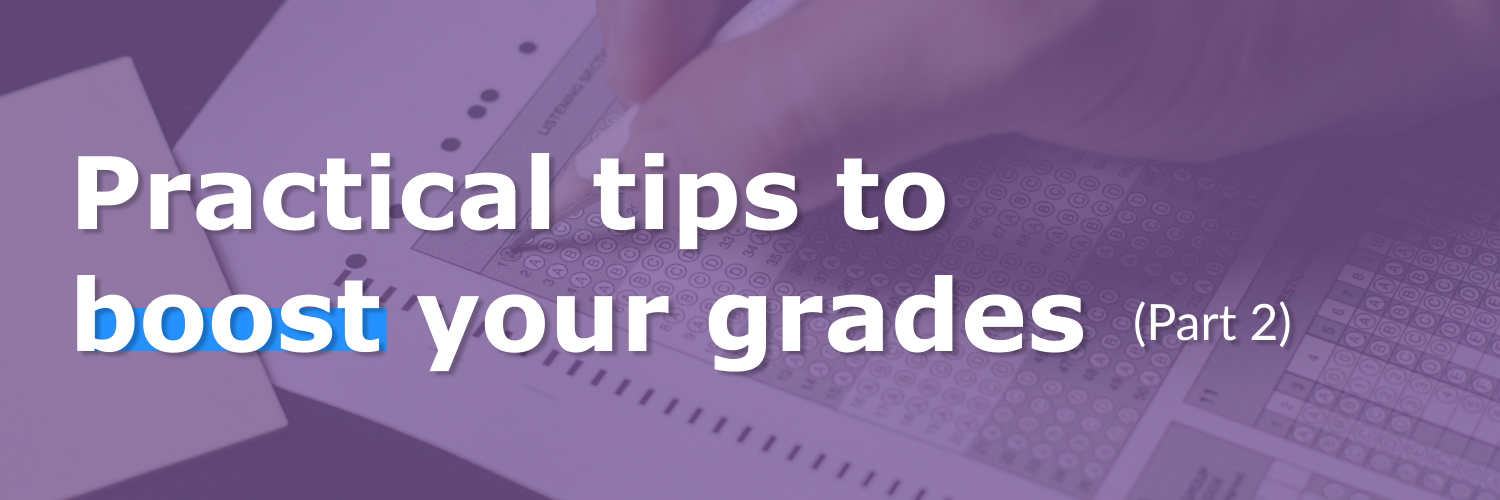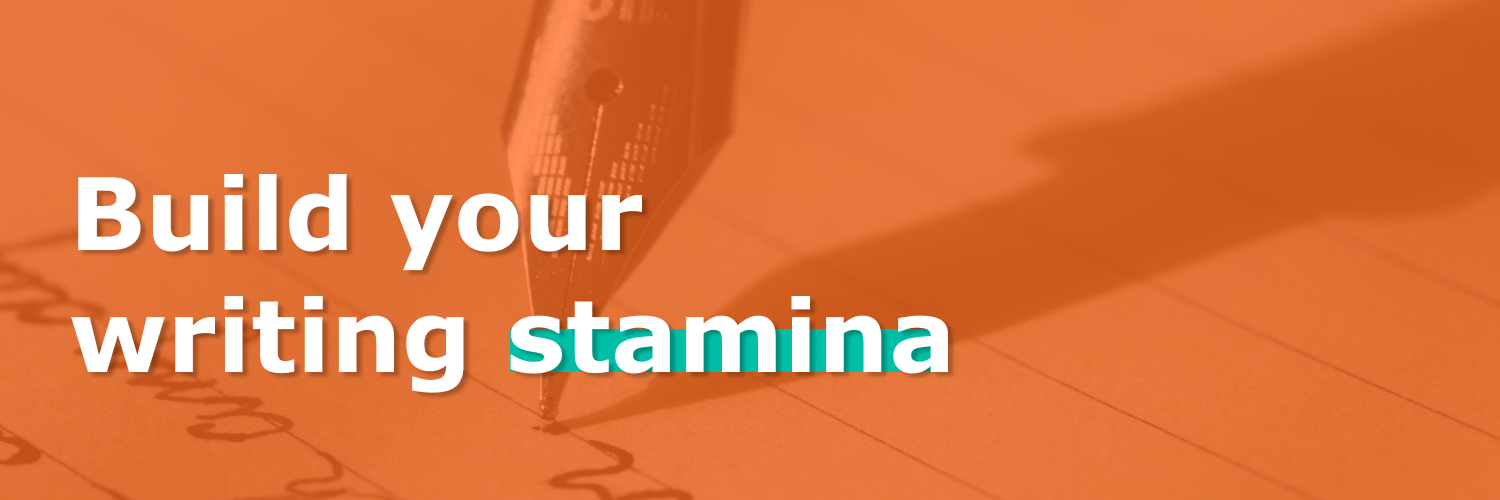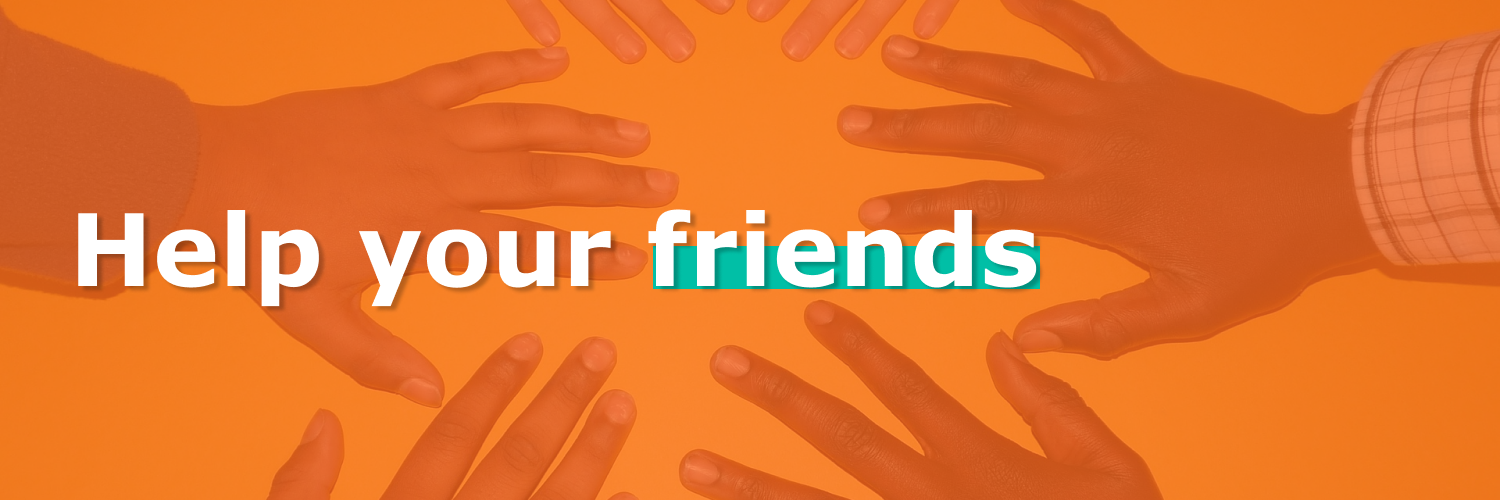Practical tips to boost your grades Part 2

Spending time efficiently is key to working smart and enjoying other things, and studying effectively. This is the second part of our two-part blog series, where we share tips on how you can boost your exam results by cutting less time and spending more quality time. The following tips are more for getting the proper preparation leading to the exam. This would make exams much more comfortable and less stressful in comparison. If you have not read part 1, click here.
Build writing stamina

Practising on this tip will make your exam less painful. We use the term painful quite literally here as this will reduce the aching feeling your hand gets after writing continuously for too long. This is usually for extended essay based subjects where you may start to get hand aches 90 minutes in a 2 hours exam. Many students use their laptops and apps for revision and their studies, which has nothing wrong. However, if you have a lot to write in the exam itself, then you should practise having to write extended prose by actually picking a pen and writing on paper. Make sure you do plenty of writing in the run-up to the exam, and if you have low writing stamina, you should also consider your choice of pen. You want one that is comfortable to hold dispenses ink freely and even try moving the paper on the desk at an angle that is more suitable for you, so it reduces the time and length your hand has to move when writing. We can even go as far as saying how you hold your pen. Most people keep their pen with their thumb, middle finger, and index fingertips, whereas some people, such as Taylor Swift, swear by the D’nealian grip. These can only be done by experimenting and knowing what is suitable for you and what works for you; we advise spending some time on it to make sure you have the right combination of ergonomics.
Make your memory work harder when studying

There are a lot of helpful learning techniques out there which are helpful and have shown to work. What all of those techniques have in common is that, in essence, that they generally need a bit more effort from your end rather than just sitting, reading, underlying and taking notes. They all need that extra degree of action which you should embrace and love, just like how an athlete would feel great after a good gym session which helped them break a sweat. Learning in the right way has two advantages – first, you shouldn’t need to put in an extended amount of hours to get the same amount of learning done. It would help if you were learning smarter, not harder. Second, if you have trained your memory thoroughly for effective memory workouts leading up to the exam, you find yourself much more on top of material come exam. This will make sure you realise you’re more prepared for the exam, and you may efficiently finish it. The more sweat and vibrant energy you put in before the exam, the less you will use during the exam time.
Break it up

There are a lot of helpful learning techniques out there which are useful and have shown to work. What all of those techniques have in common is that, in essence, that they generally need a bit more effort from your end rather than just sitting, reading, underlying and taking notes. They all need that extra degree of action which you should embrace and love, just like how an athlete would feel great after a good gym session which helped them break a sweat. Learning in the right way has two advantages – first, you shouldn’t need to put in an extended amount of hours to get the same amount of learning done. It would help if you were learning smarter, not harder. Second, if you have trained your memory thoroughly for effective memory workouts leading up to the exam, you find yourself much more on top of material come exam. This will make sure you realise you’re more prepared for the exam, and you may efficiently finish it. The more sweat and vibrant energy you put in before the exam, the less you will use during the exam time.
Say No

This is the social side of exam preparation. This isn’t discussed as much, but it is still crucial in securing your exam success. This is the art of saying no sometimes. Don’t be afraid to be assertive in running your diary, saying no to social engagements you don’t have time for or even suggestions from friends that would only distract you from your work. Be nice about it. It would be best if you didn’t preach about how they should be working harder or don’t make them aware of how hard you’re trying to work either. Just smile and politely, cheerfully decline. You don’t even have to say no every time. The vital balance to keep in mind here is to know when is it an excellent time to play or focus solely on your work.
This is called Mindful Time. Let’s say someone hands you £50 unexpectedly in the street. You would be much likely to be careful about how you spend. Perhaps you would spend it on more frivolous purchases in comparison to if you earned that money yourself. There is a similar danger with time which you may not otherwise have. You may have set up with the best of intentions, diligently. Declined social commitments and prioritised all of the daily tasks you need to do. However, you need to be mindful of how you spend your non-studying time as well. Be careful with the time you have freed up rather than spending it all on unnecessary studying activities, those that seem fun but wouldn’t get any more marks. We have made a blog on how you should approach your tasks in consideration of your time. You can also read that here.
Help your friends

Finally, be sure to stay helpful. There is always a temptation to see your friends and classmates are competitors, especially when there is only a certain percentage of top grades that can be awarded to your course. This leads to people refusing to help others out solely for the stigma of helping them out; that person might outperform you and lower the rankings. What many students fail to realise you are far better at helping others and working collaboratively. You should never begrudge the time you spent helping others; there is often no better way to cement ideas than educating someone else. So when a friend asks you to go over a topic they are struggling with, make sure you set a time and go through with it to consolidate your understanding. In general, thrive on being free and generous to share any of your tips and experiences with others so they can also benefit from it.
An old phrase goes, “If you have an idea and keep it to yourself, you only have one idea. If you share that idea with others, they will all gain that idea, but some will give an idea back in return. This will produce more ideas at the end.”
